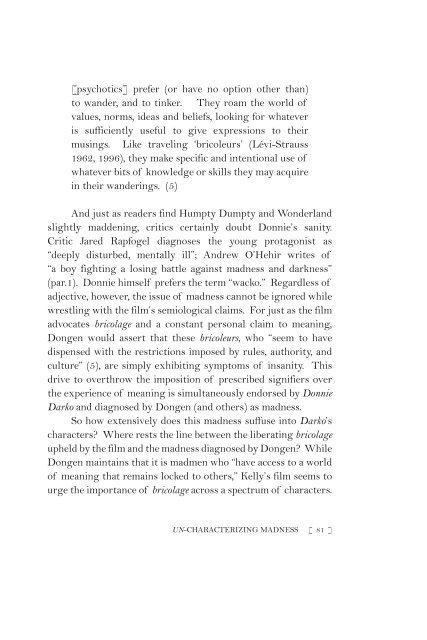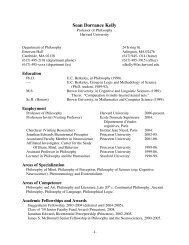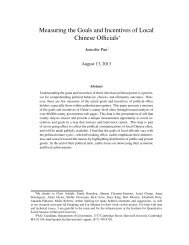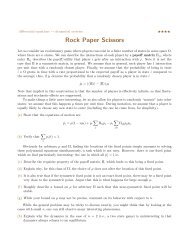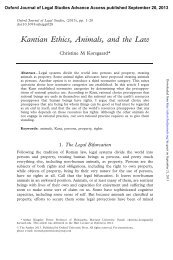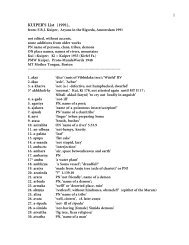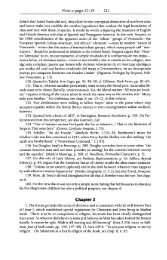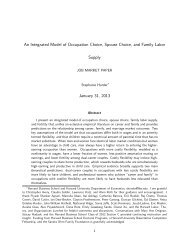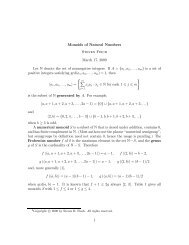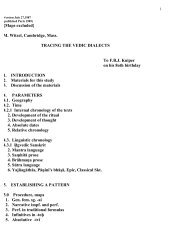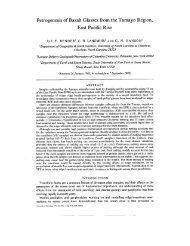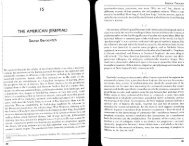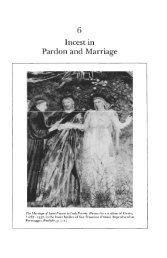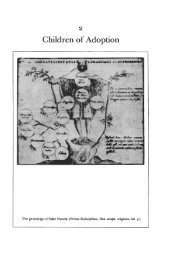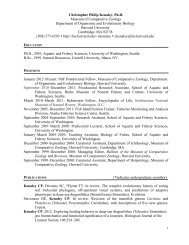Un-Characterizing Madness The Semiotic Revolution of Donnie Darko
Un-Characterizing Madness The Semiotic Revolution of Donnie Darko
Un-Characterizing Madness The Semiotic Revolution of Donnie Darko
Create successful ePaper yourself
Turn your PDF publications into a flip-book with our unique Google optimized e-Paper software.
[psychotics] prefer (or have no option other than)<br />
to wander, and to tinker. <strong>The</strong>y roam the world <strong>of</strong><br />
values, norms, ideas and beliefs, looking for whatever<br />
is sufficiently useful to give expressions to their<br />
musings. Like traveling ‘bricoleurs’ (Lévi-Strauss<br />
1962, 1996), they make specific and intentional use <strong>of</strong><br />
whatever bits <strong>of</strong> knowledge or skills they may acquire<br />
in their wanderings. (5)<br />
And just as readers find Humpty Dumpty and Wonderland<br />
slightly maddening, critics certainly doubt <strong>Donnie</strong>’s sanity.<br />
Critic Jared Rapfogel diagnoses the young protagonist as<br />
“deeply disturbed, mentally ill”; Andrew O’Hehir writes <strong>of</strong><br />
“a boy fighting a losing battle against madness and darkness”<br />
(par.1). <strong>Donnie</strong> himself prefers the term “wacko.” Regardless <strong>of</strong><br />
adjective, however, the issue <strong>of</strong> madness cannot be ignored while<br />
wrestling with the film’s semiological claims. For just as the film<br />
advocates bricolage and a constant personal claim to meaning,<br />
Dongen would assert that these bricoleurs, who “seem to have<br />
dispensed with the restrictions imposed by rules, authority, and<br />
culture” (5), are simply exhibiting symptoms <strong>of</strong> insanity. This<br />
drive to overthrow the imposition <strong>of</strong> prescribed signifiers over<br />
the experience <strong>of</strong> meaning is simultaneously endorsed by <strong>Donnie</strong><br />
<strong>Darko</strong> and diagnosed by Dongen (and others) as madness.<br />
So how extensively does this madness suffuse into <strong>Darko</strong>’s<br />
characters? Where rests the line between the liberating bricolage<br />
upheld by the film and the madness diagnosed by Dongen? While<br />
Dongen maintains that it is madmen who “have access to a world<br />
<strong>of</strong> meaning that remains locked to others,” Kelly’s film seems to<br />
urge the importance <strong>of</strong> bricolage across a spectrum <strong>of</strong> characters.<br />
UN-CHARACTERIZING MADNESS [ 81 ]


